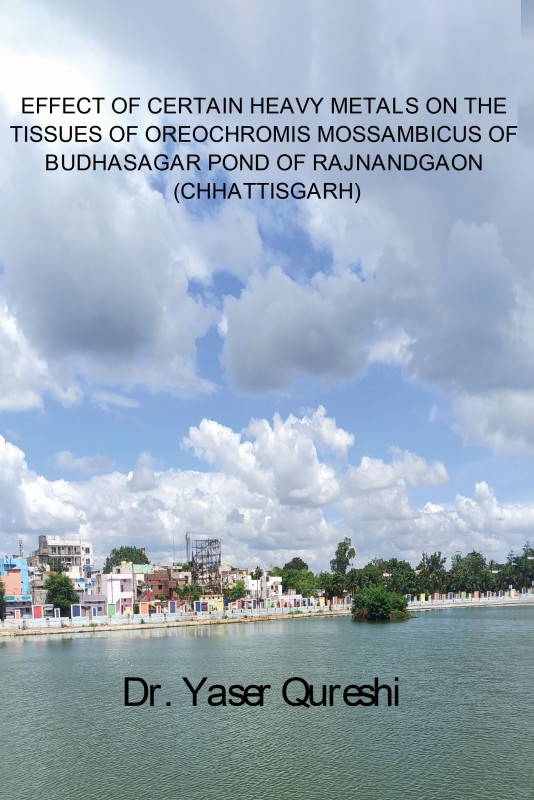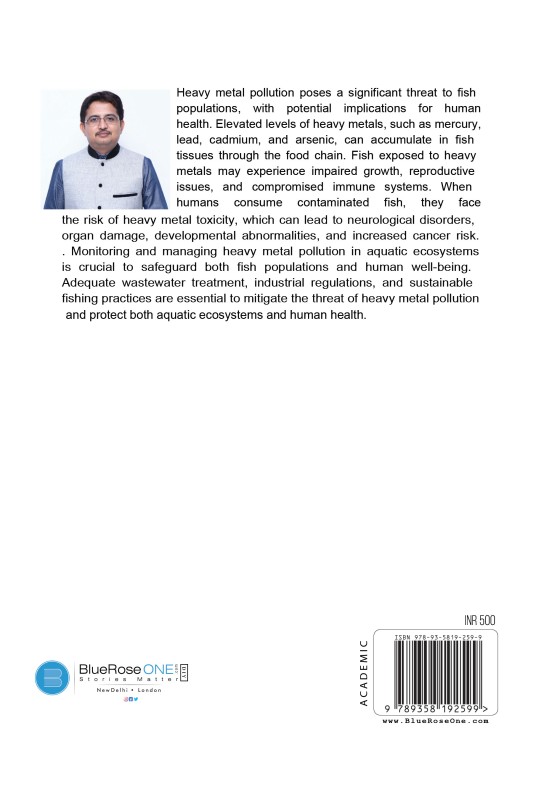Effect Of Certain Heavy Metals On The Tissues Of Oreochromis Mossambicus Of Budhasagar Pond Of Rajnandgaon(Chhatisgarh)- A Heavy Metals Pollution Study
by Dr. Yaser Qureshi | 14-Aug-2023
(0)
The presence of heavy metals in sewage makes them significant pollutants due to their ability to accumulate in organisms. In urban settlements, particularly in underdeveloped municipal areas, the sewage-fed fishery is common. However, the effects ...
Original
Books
Fastest
Delivery
7-day
Replacement
Book Details
- Language : English
- Pages : 215
- ISBN : 9789358192599
- Genre: ACADEMIC
- Size : 6" x 9"
- Binding Type : PAPERBACK
- Age Group: 14 - 60 Years
- Paper Type : WHITE PAPER
- Interior : BLACK & WHITE
- Cover : GLOSS FINISH
- Book Type : PAPERBACK
- Tags : Effect Of Certain Heavy Metals On The Tissues Of Oreochromis Mossambicus Of Budhasagar Pond Of Rajnandgaon(Chhatisgarh)- A Heavy Metals Pollution Study,Dr. Yaser Qureshi
-
Best Sellers Rank :
#1085 in Academics
#7076 in Global
Reviews
There are no reviews for this product yet.

 USD
($)
USD
($) AUD
($)
AUD
($) CAD
($)
CAD
($) EUR
(€)
EUR
(€) HKD
($)
HKD
($) GBP
(£)
GBP
(£) SGD
($)
SGD
($)








